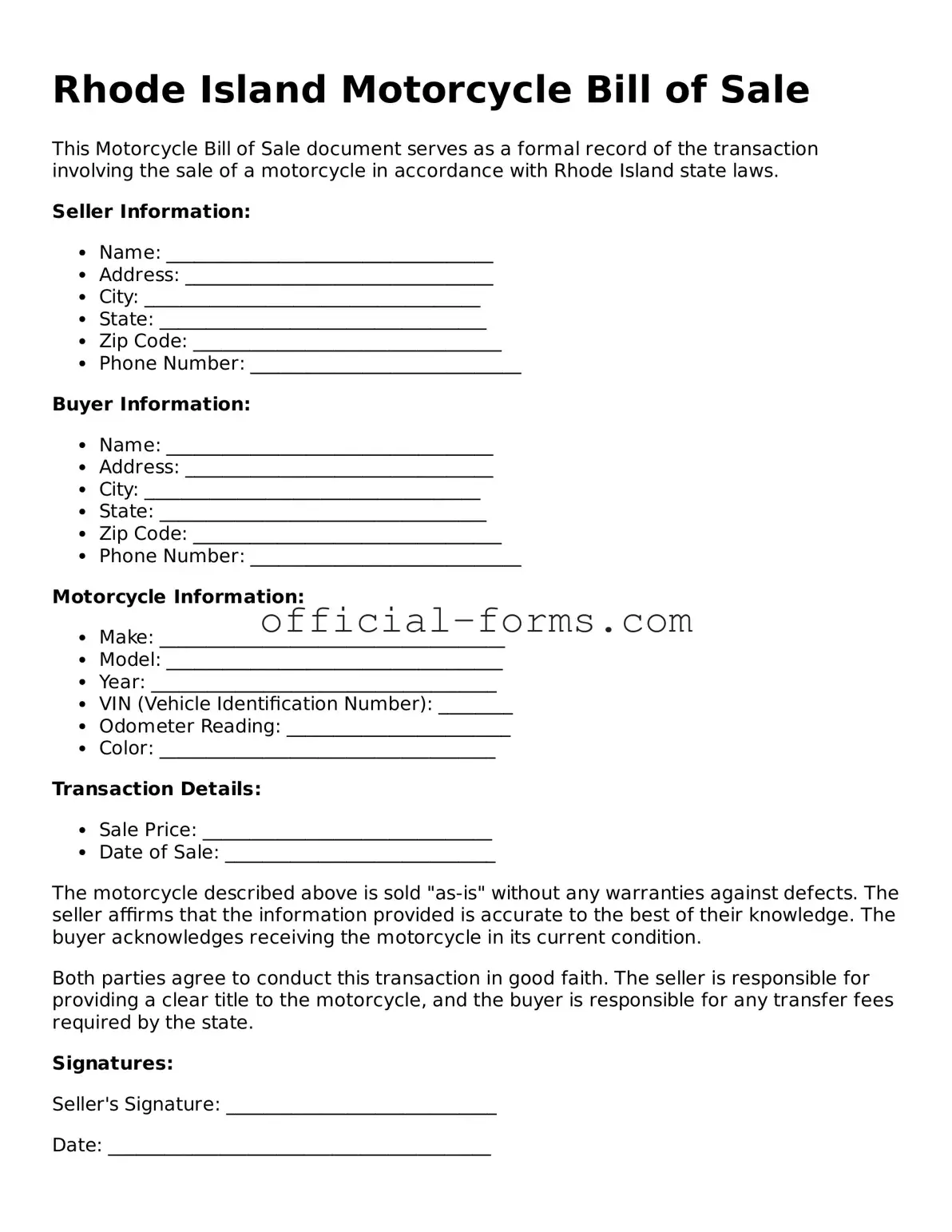Official Rhode Island Motorcycle Bill of Sale Document
The Rhode Island Motorcycle Bill of Sale is a legal document that records the transfer of ownership of a motorcycle from one party to another. This form is essential for both buyers and sellers, ensuring that the transaction is documented and protects the rights of both parties. Understanding its components and proper usage can help facilitate a smooth sale process.
Open My Motorcycle Bill of Sale Now

Official Rhode Island Motorcycle Bill of Sale Document
Open My Motorcycle Bill of Sale Now
Don’t leave your form incomplete
Finish Motorcycle Bill of Sale online quickly from start to download.
Open My Motorcycle Bill of Sale Now
or
➤ PDF
